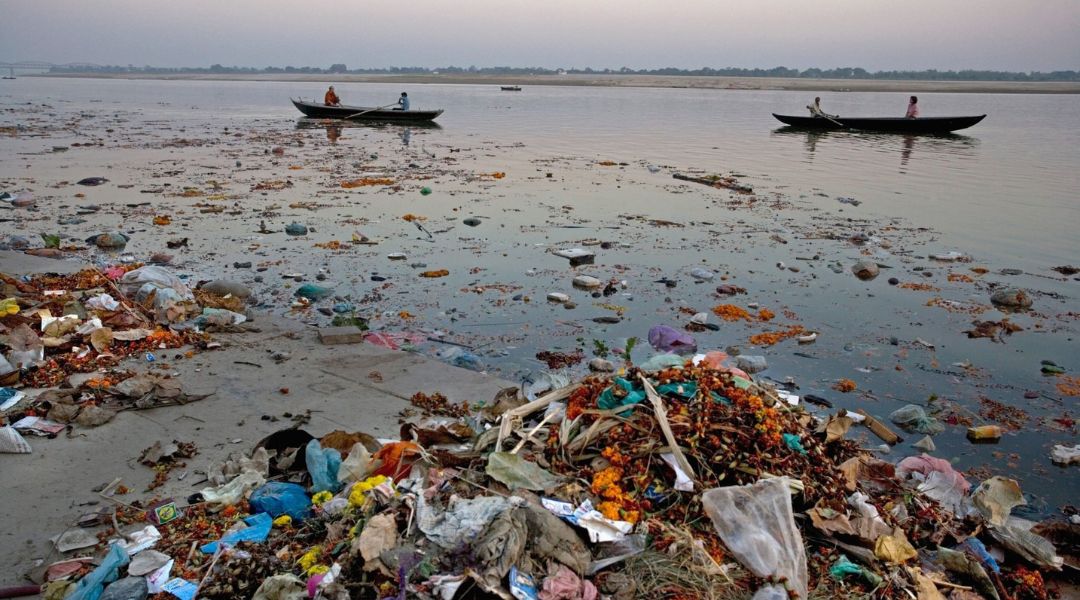
Water waste management is a critical aspect of environmental sustainability and public health, particularly in regions facing rapid urbanization and industrialization like Bihar. This report aims to provide an overview of the current status of water waste management in Bihar, highlighting challenges, initiatives, and recommendations for improvement.
Current Status
Solid Waste Management: Bihar faces significant challenges in solid waste management, with a rising trend in emissions from solid waste disposal. From 2016 to 2020, emissions increased by 32.3%, indicating the urgency for immediate action.
Domestic Wastewater Management: The treatment of domestic wastewater is a notable contributor to greenhouse gas emissions. In 2020, emissions from domestic wastewater reached 6.69 million tCO2e, highlighting the need for improved management strategies.
Industrial Wastewater Management: Industrial wastewater, emitting approximately 1.1 million tCO2e, poses another significant challenge. Inadequate sewage collection and treatment contribute to high methane generation from untreated discharge.
Initiatives and Challenges
Low-Carbon Action Plan (LCAP): Bihar has initiated a comprehensive LCAP for the waste and domestic wastewater sector. This plan includes low-carbon interventions and recommendations for emission reductions, aiming to achieve net-zero status by 2070.
Challenges: Despite initiatives like the LCAP, Bihar faces challenges such as inadequate sewage collection and treatment infrastructure, prevalent septic tanks leading to untreated discharge, and limited industrial wastewater management practices.
Recommendations
Infrastructure Development: Invest in the development of sewage collection and treatment infrastructure to effectively manage domestic and industrial wastewater. This includes the expansion of treatment plants and the promotion of decentralized treatment systems.
Promotion of Anaerobic Treatment with Methane Recovery: Prioritize anaerobic treatment of wastewater with methane recovery to reduce greenhouse gas emissions. Encourage the adoption of technologies for methane capture from treatment processes.
Enhanced Source Segregation and Waste Collection: Implement comprehensive door-to-door waste collection systems with enhanced source segregation. Promote community awareness programs to encourage waste reduction at the source.
Strengthened Policy Enforcement: Enforce existing waste management policies rigorously to ensure compliance and accountability among stakeholders. Implement penalties for improper waste disposal practices to deter non-compliance.
Capacity Building and Training: Provide training and capacity-building programs for local authorities, waste management workers, and community members to enhance their knowledge and skills in effective waste management practices.
Conclusion
Bihar’s commitment to transforming its waste management profile through initiatives like the LCAP demonstrates a proactive approach towards environmental sustainability. By implementing the recommendations outlined in this report, Bihar can move closer to achieving its goal of sustainable water waste management and contribute to a greener future.
How does Akvo contribute to zero water wastage?
Akvo’s commitment to fostering a sustainable future encompasses promoting Sustainable Development Goals (SDGs) such as SDG 6 – Clean water and sanitation for all, as well as SDG 14 – Life Below Water. One significant aspect of Akvo’s contribution is through its water supply system, which includes Atmospheric Water Generators (AWGs) which create pure drinking water from air without any water wastage. Here’s how Akvo can be an integral part of this process:
No Impact on Aquatic Ecosystems: Akvo’s water supply system, particularly AWGs, operates without relying on external water sources or pipelines. This means there is no extraction or diversion of water from aquatic ecosystems, ensuring minimal to no impact on marine life and ecosystems which promotes SDG 14.
Clean Drinking Water: By utilizing AWGs, Akvo provides clean drinking water without the need for traditional water sources. This ensures that communities have access to safe and reliable drinking water, promoting SDG 6 – Clean water and sanitation for all.
Zero Water Wastage: Akvo’s AWGs generate water from the air without producing any wastewater. This zero water wastage feature not only ensures efficient water utilization but also aligns with efforts to reduce water wastage and promote sustainable water management practices.
Link to article: https://www.downtoearth.org.in/news/waste/bihar-to-strengthen-waste-management-profile-by-formulating-a-low-carbon-action-plan-94963
